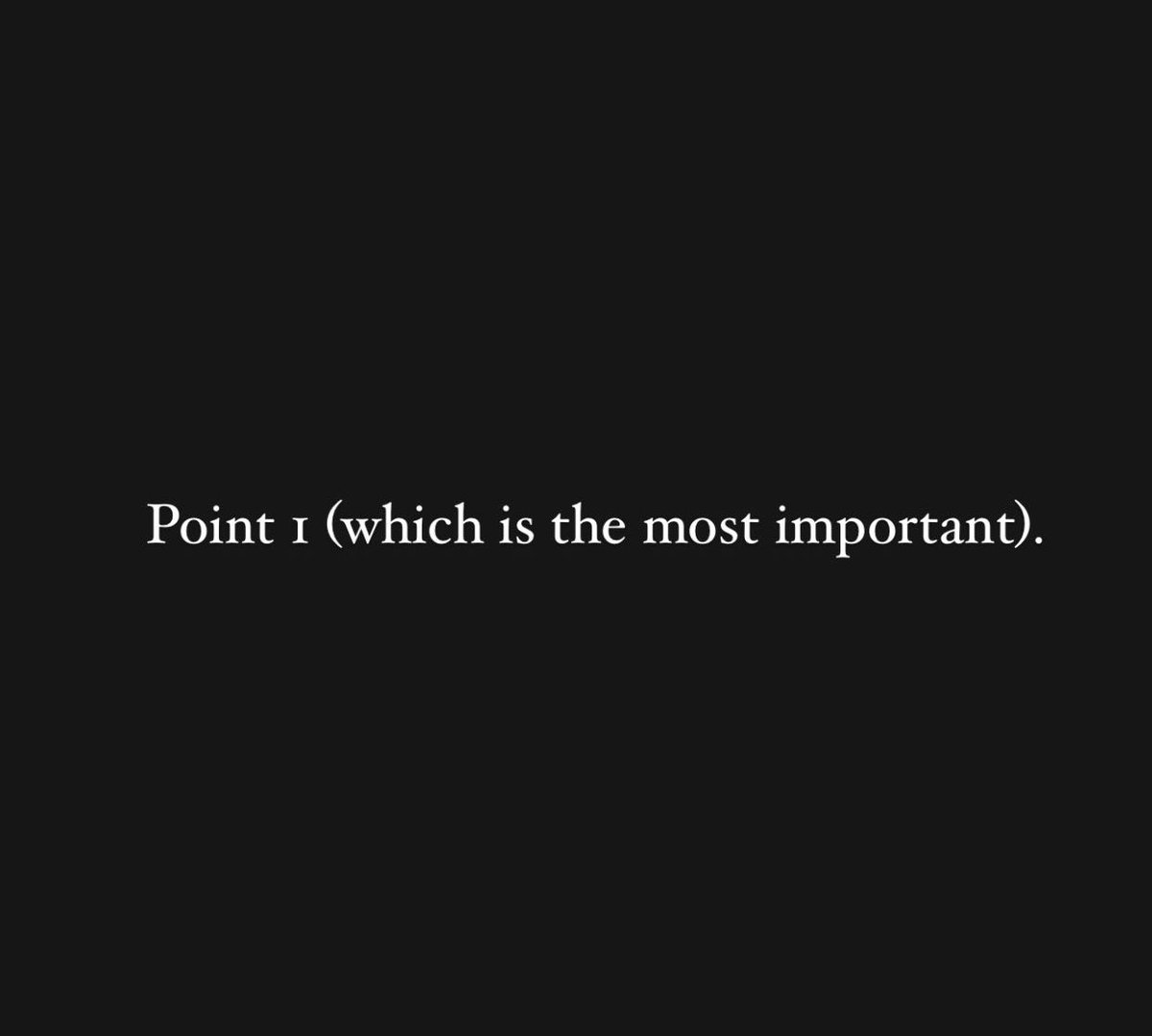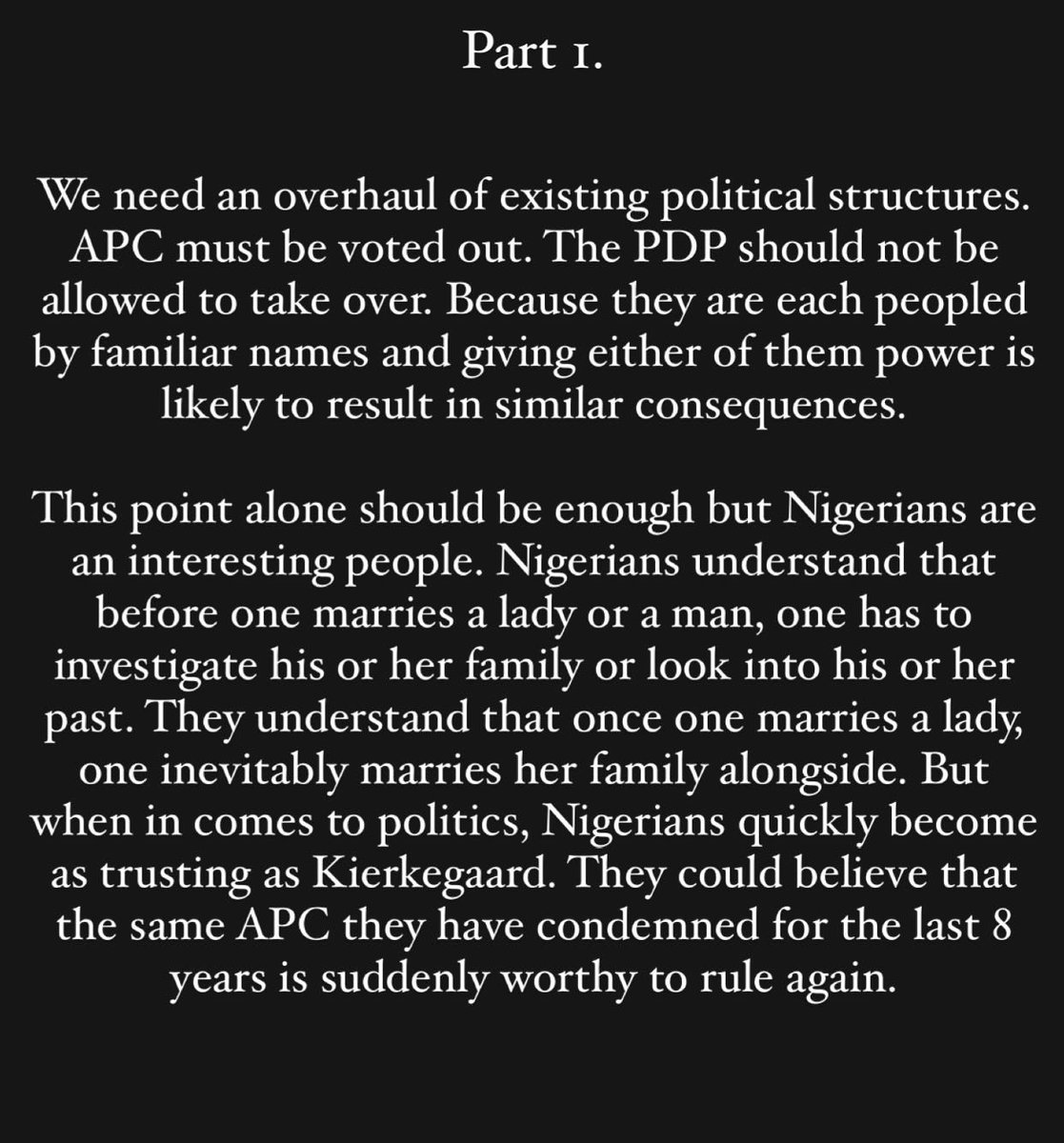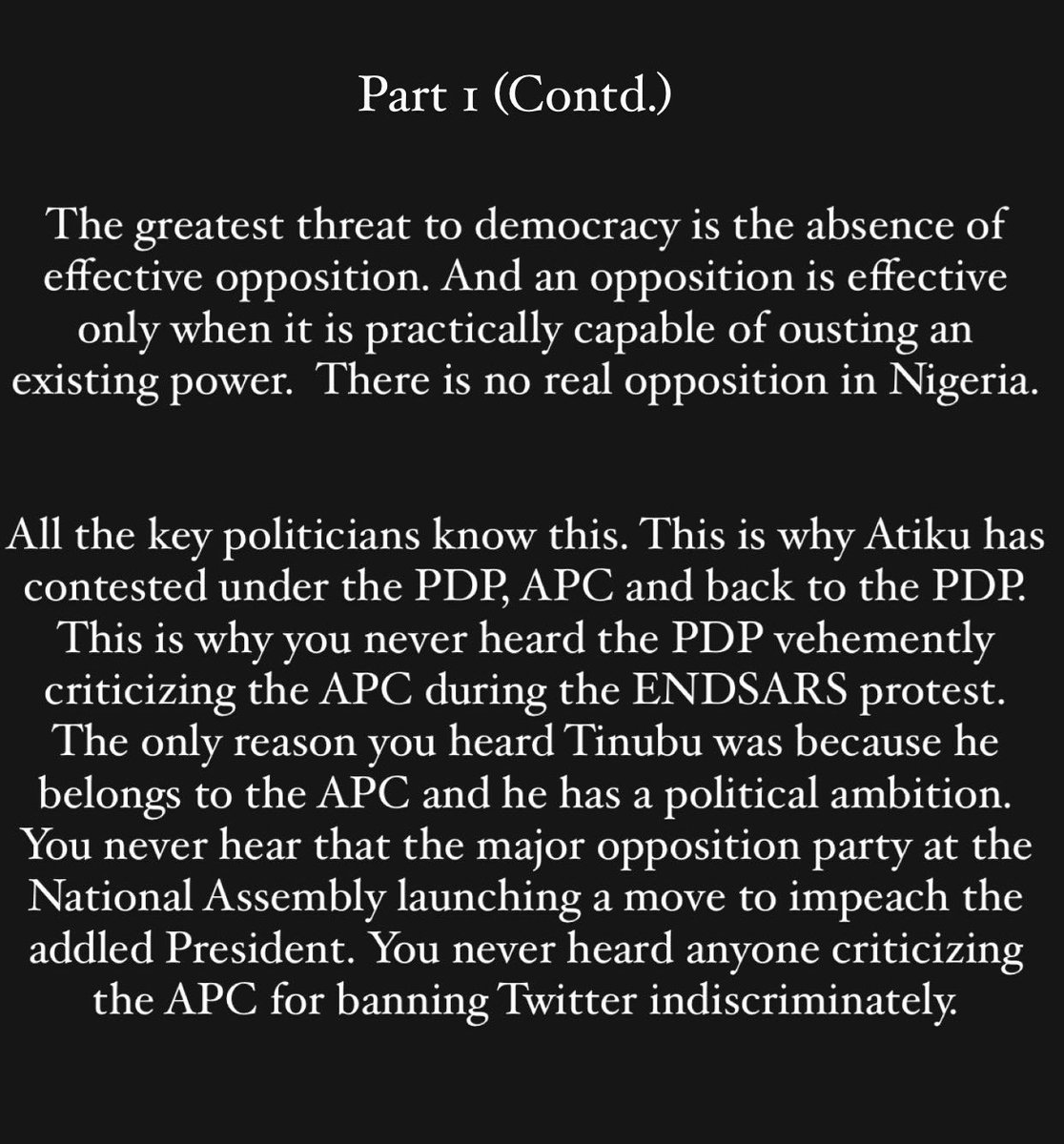I share some reasons for supporting Peter Obi, here. This is to not only reinforce our convictions as Obi’s supporters but also to clarify the enormity of significance that our individual choices carry. See below: 







In summary, please vote for Peter Obi. I made an analysis criticizing BAT on my Instagram: @mr_possidez. I’ll do well to save it in a highlight.
• • •
Missing some Tweet in this thread? You can try to
force a refresh
















